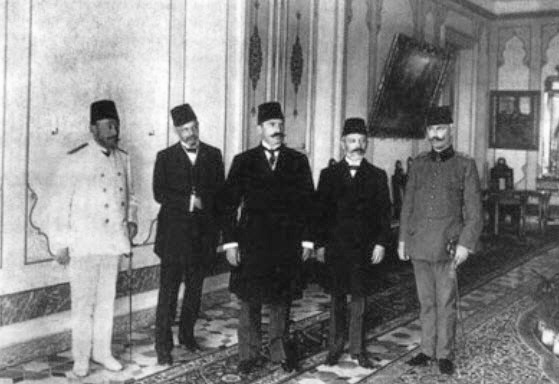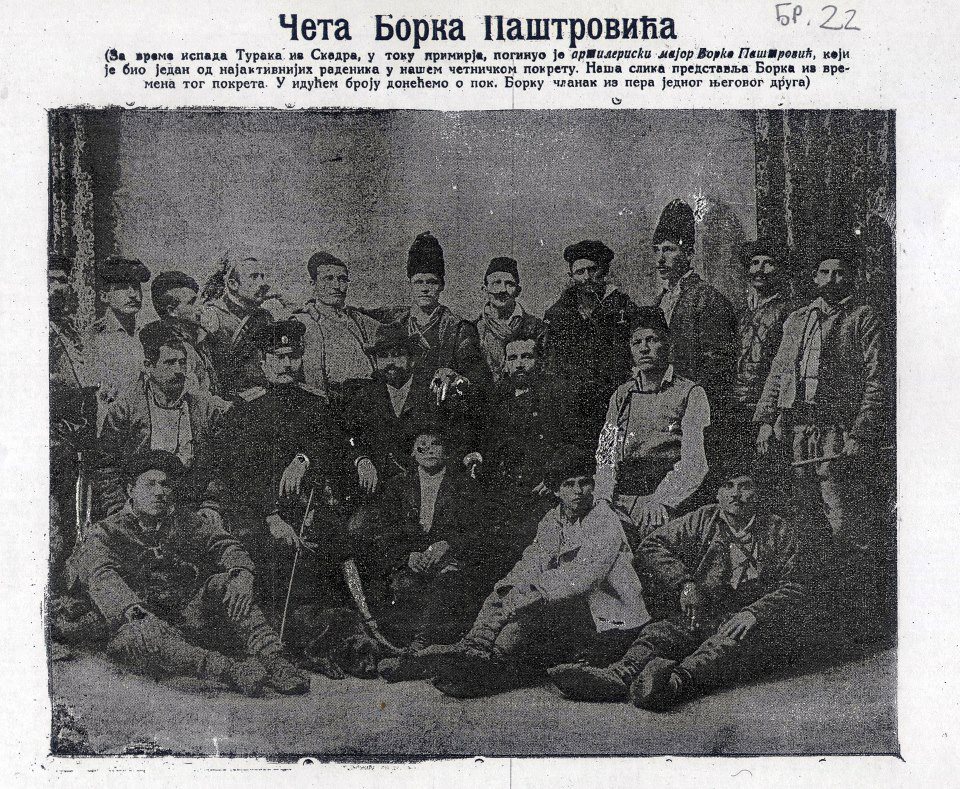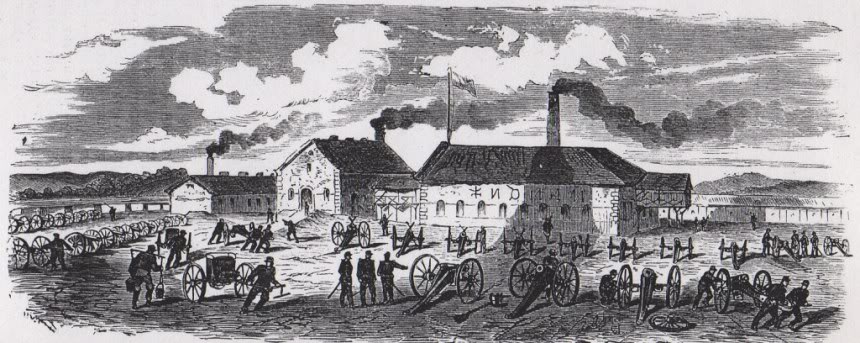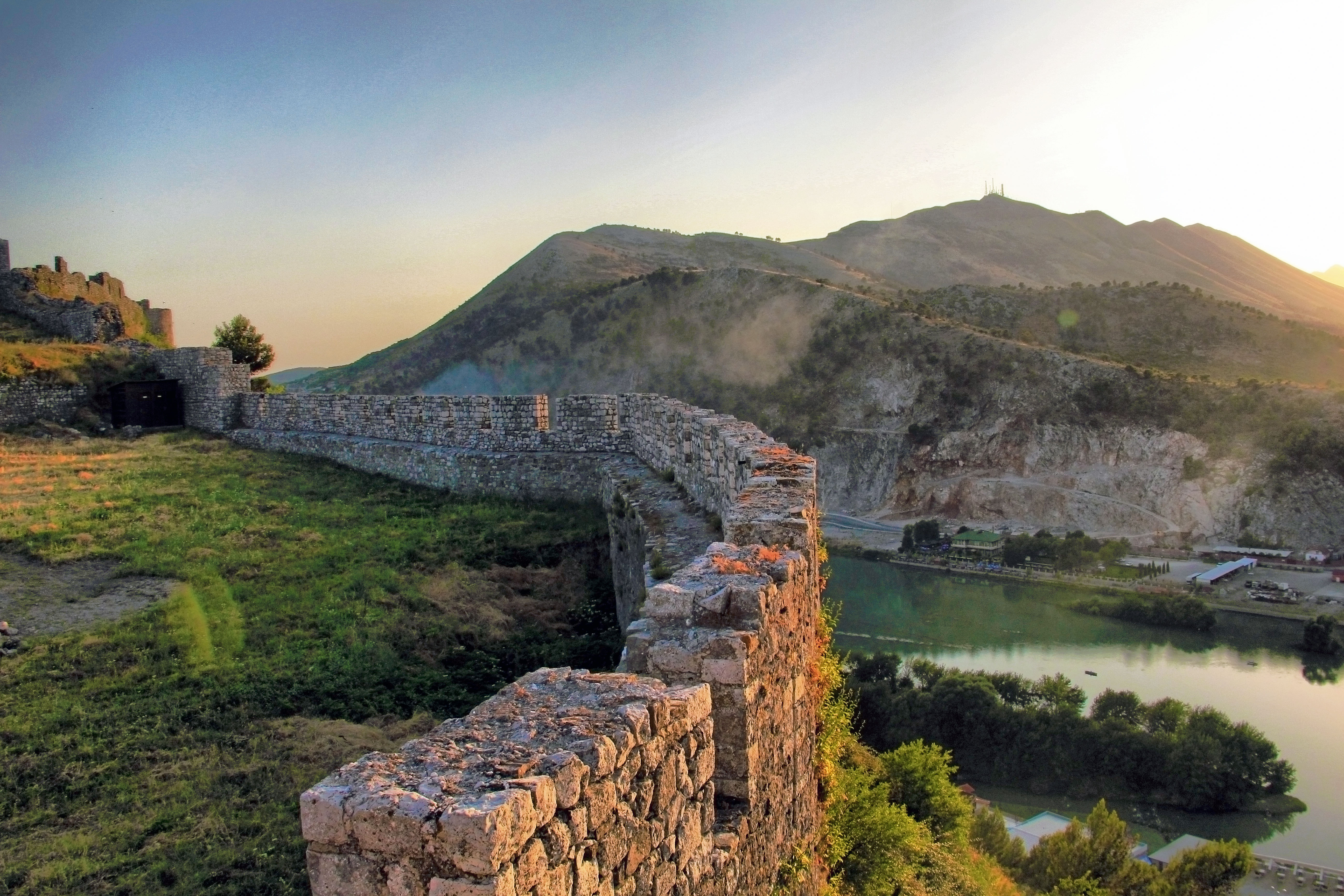|
Borko Paštrović
Borko Paštrović (Борко Паштровић; April 12, 1875—December 18, 1912) was a Serbian Chetnik commander and later a major of artillery in the Serbian Army during the First Balkan War. Life Paštrović was born in Kragujevac, Principality of Serbia (now Serbia) on April 12, 1875 , his origins are from the Paštrović tribe as his surname suggests. After finishing six years of gymnasium in Kruševac, he attended the Military Academy in Belgrade. On April 16, 1905, as a lieutenant in the Kragujevac Chetnik armed band ( sr-Latn, četa) he participated in the Battle of Čelopek against forces of the Ottoman Army, alongside commanders Doksim Mihailović, Savatije Milošević, Lazar Kujundžić, Vojislav Tankosić, Aksentije Bacetović and Pavle Mladenović. He also participated in the First Balkan War, during which he commanded an artillery detachment of the Serbian Army. In Lezhë, on the Adriatic, they clashed with Essad Pasha who tried to withdraw from Shkodër ... [...More Info...] [...Related Items...] OR: [Wikipedia] [Google] [Baidu] |
Kragujevac
Kragujevac ( sr-Cyrl, Крагујевац, ) is the List of cities in Serbia, fourth largest city in Serbia and the administrative centre of the Šumadija District. It is the historical centre of the geographical region of Šumadija in central Serbia, and is situated on the banks of the Lepenica (Great Morava), Lepenica River. According to the 2022 census, City of Kragujevac has 171,186 inhabitants. Kragujevac was the first capital of modern Serbia and the first constitution in the Balkans, the Sretenje Constitution, was proclaimed in the city in 1835. A unit of the Scottish Women's Hospitals for Foreign Service was located there in World War I. During the Second World War, Kragujevac was the site of a Kragujevac massacre, massacre by the Nazis in which 2,778 Serb men and boys were killed. Modern Kragujevac is known for its large munitions (Zastava Arms) and automobile (Fiat Serbia) industries, as well as its status as an education centre housing the University of Kragujevac, one ... [...More Info...] [...Related Items...] OR: [Wikipedia] [Google] [Baidu] |
Ottoman Army (1861–1922)
The Ottoman Army was the military of the Ottoman Empire after the country was reorganized along modern western European lines during the Tanzimat modernization period. It operated during the decline and Dissolution of the Ottoman Empire, dissolution of the empire, which roughly occurred between 1861 (though some sources date back to 1842) and 1918, the end of Middle Eastern theatre of World War I, World War I for the Ottomans. The Crimean War was the first war effort in which the modern army took part in, proving itself as a decent force. The last reorganization occurred during the Second Constitutional Era. The uniforms of the modern army reflected the military uniforms of the western European countries who were the Ottoman army's principal advisors at the time. The State organisation of the Ottoman Empire, Ottoman government considered adopting a Western-style headdress for all personnel within the army, but the Fez (hat), fez was favoured as it was more suited to the posture ... [...More Info...] [...Related Items...] OR: [Wikipedia] [Google] [Baidu] |
People From The Principality Of Serbia
The term "the people" refers to the public or common mass of people of a polity. As such it is a concept of human rights law, international law as well as constitutional law, particularly used for claims of popular sovereignty. In contrast, a people is any plurality of persons considered as a whole. Used in politics and law, the term "a people" refers to the collective or community of an ethnic group or nation. Concepts Legal Chapter One, Article One of the Charter of the United Nations states that "peoples" have the right to self-determination. Though the mere status as peoples and the right to self-determination, as for example in the case of Indigenous peoples (''peoples'', as in all groups of indigenous people, not merely all indigenous persons as in ''indigenous people''), does not automatically provide for independent sovereignty and therefore secession. Indeed, judge Ivor Jennings identified the inherent problems in the right of "peoples" to self-determination, as i ... [...More Info...] [...Related Items...] OR: [Wikipedia] [Google] [Baidu] |
Military Personnel From Kragujevac
A military, also known collectively as armed forces, is a heavily Weapon, armed, highly organized force primarily intended for warfare. Militaries are typically authorized and maintained by a sovereign state, with their members identifiable by a distinct military uniform. They may consist of one or more military branches such as an army, navy, air force, space force, marines, or coast guard. The main task of a military is usually defined as defence of their state and its interests against external armed threats. In broad usage, the terms "armed forces" and "military" are often synonymous, although in technical usage a distinction is sometimes made in which a country's armed forces may include other paramilitary forces such as armed police. Beyond warfare, the military may be employed in additional sanctioned and non-sanctioned functions within the state, including internal security threats, crowd control, promotion of political agendas, emergency services and reconstructi ... [...More Info...] [...Related Items...] OR: [Wikipedia] [Google] [Baidu] |
1912 Deaths
This year is notable for Sinking of the Titanic, the sinking of the ''Titanic'', which occurred on April 15. In Albania, this leap year runs with only 353 days as the country achieved switching from the Julian to Gregorian Calendar by skipping 13 days. Friday, 30 November ''(Julian Calendar)'' immediately turned Saturday, 14 December 1912 ''(in the Gregorian Calendar)''. Events January * January 1 – The Republic of China (1912–49), Republic of China is established. * January 5 – The Prague Conference (6th All-Russian Conference of the Russian Social Democratic Labour Party) opens. * January 6 ** German Geophysics, geophysicist Alfred Wegener first presents his theory of continental drift. ** New Mexico becomes the 47th U.S. state. * January 8 – The African National Congress is founded as the South African Native National Congress, at the Waaihoek Wesleyan Church in Bloemfontein, to promote improved rights for Black people, black South Africans, with Joh ... [...More Info...] [...Related Items...] OR: [Wikipedia] [Google] [Baidu] |
1875 Births
Events January * January 1 – The Midland Railway of England abolishes the Second Class passenger category, leaving First Class and Third Class. Other British railway companies follow Midland's lead during the rest of the year (Third Class is renamed Second Class in 1956). * January 5 – The Palais Garnier, one of the most famous opera houses in the world, is inaugurated as the home of the Paris Opera. * January 12 – Guangxu Emperor, Guangxu becomes the 11th Qing dynasty Emperor of China at the age of 3. He succeeds his cousin, the Tongzhi Emperor, who had no sons of his own. * January 14 – The newly proclaimed King Alfonso XII of Spain (Queen Isabella II's son) arrives in Spain to restore the monarchy during the Third Carlist War. * January 24 – Camille Saint-Saëns' orchestral ''Danse macabre (Saint-Saëns), Danse macabre'' receives its première. February * February 3 – Third Carlist War: Battle of Lácar – Carlist commander Torcuat ... [...More Info...] [...Related Items...] OR: [Wikipedia] [Google] [Baidu] |
Shkodër
Shkodër ( , ; sq-definite, Shkodra; historically known as Scodra or Scutari) is the List of cities and towns in Albania, fifth-most-populous city of Albania and the seat of Shkodër County and Shkodër Municipality. Shkodër has been List of oldest continuously inhabited cities, continuously inhabited since the Early Bronze Age ( 2250–2000 BC), and has roughly 2,200 years of recorded history. The city sprawls across the Plain of Mbishkodra between the southern part of Lake Skadar, Lake Shkodër and the foothills of the Albanian Alps on the banks of the Buna (Adriatic Sea), Buna, Drin (river), Drin and Kir (river), Kir rivers. Due to its proximity to the Adriatic Sea, Shkodër is affected by a seasonal Mediterranean climate with Continental climate, continental influences. An urban settlement called ''Skodra'' was founded by the Illyrians, Illyrian tribe of Labeatae in the 4th century BCE. It became the capital of the Illyrian kingdom under the Ardiaei and Labeatae and was one ... [...More Info...] [...Related Items...] OR: [Wikipedia] [Google] [Baidu] |
Essad Pasha Toptani
Essad Toptani (1863/1875 – 13 June 1920) was an Albanian politician who served as the third prime minister of Albania from 1914 to 1916. He previously established the Republic of Central Albania based in Durrës. An Ottoman army officer, he served as the Albanian deputy in the Ottoman Parliament and later cooperated with the Balkan League after the Balkan Wars. Biography Early life  Essad Toptani was born in 1863 in ,
Essad Toptani was born in 1863 in ,
|
Adriatic Sea
The Adriatic Sea () is a body of water separating the Italian Peninsula from the Balkans, Balkan Peninsula. The Adriatic is the northernmost arm of the Mediterranean Sea, extending from the Strait of Otranto (where it connects to the Ionian Sea) to the northwest and the Po Valley. The countries with coasts on the Adriatic are Albania, Bosnia and Herzegovina, Croatia, Italy, Montenegro, and Slovenia. The Adriatic contains more than 1,300 islands, mostly located along its eastern coast. It is divided into three basins, the northern being the shallowest and the southern being the deepest, with a maximum depth of . The prevailing currents flow counterclockwise from the Strait of Otranto. Tidal movements in the Adriatic are slight, although acqua alta, larger amplitudes occur occasionally. The Adriatic's salinity is lower than the Mediterranean's because it collects a third of the fresh water flowing into the Mediterranean, acting as a dilution basin. The surface water temperatures ... [...More Info...] [...Related Items...] OR: [Wikipedia] [Google] [Baidu] |
Pavle Mladenović
Pavle Mladenović-Jačinski ( sr-cyr, Павле Младеновић; d. June 16, 1905), known as Čiča Pavle (Чича Павле; "Uncle Pavle") and Pavle Jačinski, was a Serbian Chetnik Organization, Serbian Chetnik commander active in Macedonia (region), Macedonia during the Macedonian Struggle. Life Mladenović was born in the village of Jačince, in the region of Ovče Polje, at the time part of the Ottoman Empire. He worked as a peasant in his village and became Bulgarian Exarchate, an Exarchist at the end of the 19th century. When the Internal Macedonian Revolutionary Organization (IMRO) started assassinating and murdering people who identified as Serbs in the Kumanovo region, Čiča Pavle took his sons and nephews to the woods and joined the precursor to the Serbian Chetnik Organization. He started guerilla fighting in springtime 1903, as the first Serbian vojvoda, a year before the establishment of the ''Serbian Committee''. His band had strict orders of protection, a ... [...More Info...] [...Related Items...] OR: [Wikipedia] [Google] [Baidu] |
Vojislav Tankosić
Vojislav Tankosić ( sr-cyr, Војислав Танкосић, 20 September 1880 – 2 November 1915) was a Serbian military officer, ''vojvoda'' of the Serbian Chetnik Organization, major of the Serbian Army, and member of the Black Hand (Serbia), Black Hand, who participated in the May Coup (Serbia), May Coup and was accused of involvement in the Assassination of Archduke Franz Ferdinand. Overview Tankosić was born in Ruklada, in the Tamnava region near Valjevo. His family came from Bosanska Krajina, Bosnian Krajina. He graduated from the Gymnasium (school), gymnasium and from the prestigious Military Academy (Serbia), Military Academy. Tankosić came to the attention of the Serbian public as a young officer when he set about assaulting an English reporter who had allegedly defamed Serbia and who found himself in transit in Belgrade; the Serbian police rescued the young Winston Churchill and sent him on his way. Tankosić's demonstrated high national consciousness gained hi ... [...More Info...] [...Related Items...] OR: [Wikipedia] [Google] [Baidu] |






